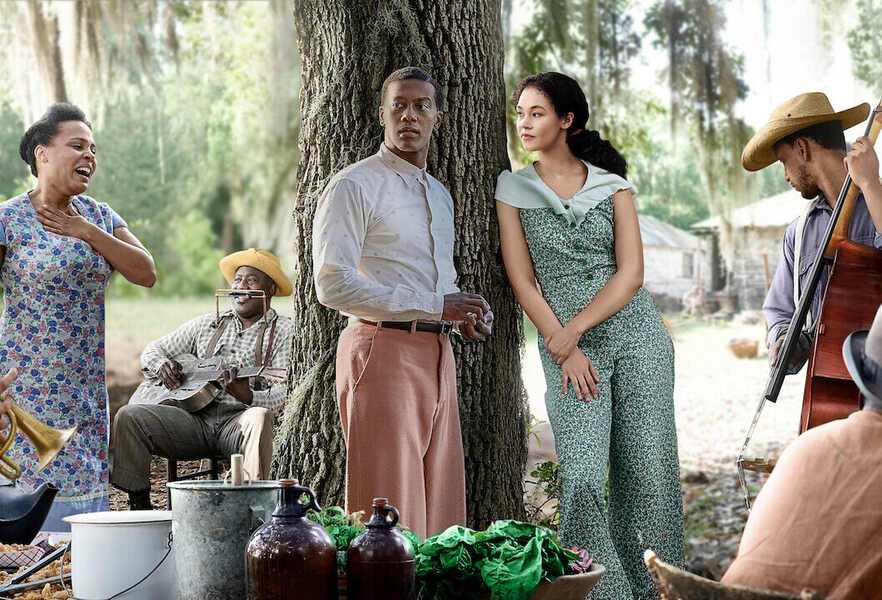Tyler Perry waited nearly three decades, he waited for the “right time” to present to the world his magnum opus. When Netflix released the trailer for A Jazzman’s Blues, I expected a whole lot of jazz and love soaked in racial injustice and hate. But never did I expect to be a part of the soulful odyssey of heartbreak and anger that Perry compels his audience to embark on.
Starring Joshua Boone and Solea Pfeiffer in the lead, the cast also includes Daphne Maxwell Reid, Milana Jackson, Amirah Vann, E. Roger Mitchell, Austin Scott and Ryan Eggold, among others.
Perry wrote the script for the film 27 years ago. While he presented Madea and a series of other comedies over the years, the filmmaker was waiting for the perfect moment to bring to the world this brilliant film that sees a mix of several elements- a contemporary Cain and Abel story, the dysfunctionalities of a Black family in a Jim Crow-era and the story of star-crossed lovers who courageously try and surmount racial injustice and other socio-political factors to unite.
The film begins in 1987 and leads to the discovery of a murder that happened 40 years ago, in 1947. An old Hattie is seen going to a white, typically racist political candidate and giving him a bunch of letters addressed to Leanne Parker, aka “Lil Ann”. As the man begins reading the letters, the audience is transported to the South in 1937, where a Black community lives and engages in Sunday jazz.
Bayou is the heart of the story. Ridiculed by his stepfather and brother for his lack of manliness and inability to play the trumpet, he finds solace in his mother’s arms. A strong woman, Hattie encourages Bayou to go out and explore. He falls in love with Leanne ‘Bucket’ Parker, with whom he sneaks out at night. Leanne is raped at night by her grandfather, and it pains Bayou not to be able to go and murder him in cold blood.
The two lovers plan to get married and escape. However, when Leanne’s mother comes to know, she takes her away to Boston, breaking Bayou’s heart. The latter keeps writing to his lover in eloquent prose and romance, hoping to run away with her someday.
At the heart of Perry’s romantic quest is a set of hapless lovers who desire to escape. However, this forbidden affair takes an interesting turn when Leanne and her racist, Jim Crow husband and his family return to the South. Aware of how dangerous it is, Bayou decides to take a chance, and the two engage in a blissful romp over the night. Discovered by her ominous mother, Leanne is forced to put an affair to a stop when Bayou has to escape the wrath of her husband’s family.
Bayou’s heroin addict stepbrother’s resentment grows when the former is praised for his shy slinging skills as the latter drowns in heroin and trauma from having seen his father killed. Insistent on picking on Bayou in a classic Cain and Abel fashion, he rats him out to the white, which leads to Bayou’s murder in cold blood as Leanne watches. In a set of jarring scenes, Perry juxtaposes a rich evening of jazz rendezvous with Bayou and Leanne hiding in the car before the former gets hunted down and lynched.
A brilliant symphony of racism and murder, the film is a raging commentary on white supremacy. With elements of the Holocaust and antisemitism woven into the inherent narrative about Black racial injustice, Perry’s exhilarating musical ride is sentimental and volatile. In all its grandeur, the film is a must-watch in the current political landscape and is a testament to Perry’s merit as an evocative filmmaker.
